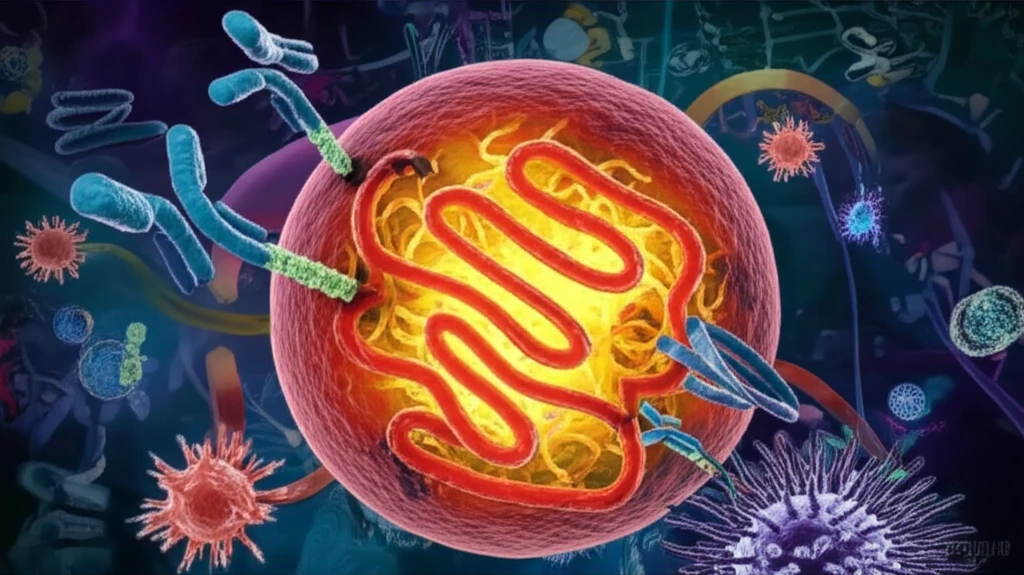
Vaccine Breakthrough: How Targeting Cellular Stress Could Revolutionize Immunization
"New research illuminates how vaccine adjuvants like AS03 leverage cellular stress pathways to amplify the immune response, paving the way for more effective and innovative vaccine designs."
Vaccines stand as a cornerstone of modern healthcare, preventing infectious diseases and saving countless lives. However, the effectiveness of a vaccine often hinges on adjuvants – substances added to vaccines to enhance the body's immune response. While adjuvants have been used for decades, the precise mechanisms by which they work have remained somewhat of a mystery. Until now, there’s been a growing understanding of the critical role of cellular stress in this process.
One adjuvant, in particular, called Adjuvant System 03 (AS03), has garnered attention for its use in licensed vaccines. Previous research indicates that AS03 triggers a local, short-term inflammatory response, contributing to its overall effectiveness. Yet, the specific molecular pathways involved in AS03's immunostimulatory properties have been unclear. Researchers are now exploring these pathways to unlock new strategies for vaccine development.
Recent studies have shed light on how AS03 interacts with cells at a molecular level. These investigations reveal that AS03 induces changes in lipid metabolism within immune cells, leading to endoplasmic reticulum (ER) stress and activation of the unfolded protein response (UPR) pathway. This cellular stress response appears to be a crucial component in AS03's ability to boost the immune system and generate strong, long-lasting immunity.
Unlocking the Power of AS03: Targeting Cellular Stress for Better Immunity

The new research investigates how AS03, an oil-in-water emulsion, stimulates the immune system. Scientists discovered that AS03 causes a rapid shift in gene expression related to lipid metabolism in the draining lymph nodes after intramuscular injection in mice. Further in vitro studies showed that these metabolic changes lead to profound alterations in the structure of the endoplasmic reticulum (ER) and activate the unfolded protein response (UPR).
- Adjuvants: Substances added to vaccines to enhance the immune response.
- AS03: An oil-in-water emulsion adjuvant used in some licensed vaccines.
- Endoplasmic Reticulum (ER): A network of membranes within cells involved in protein and lipid synthesis.
- Unfolded Protein Response (UPR): A cellular stress response triggered by disruptions in ER function.
- Lipid Metabolism: The process by which cells break down or store fats and other lipids.
The Future of Vaccine Design: Harnessing the Power of Cellular Stress
This research opens new avenues for designing more effective vaccines by strategically targeting cellular stress pathways. By understanding how adjuvants like AS03 activate these pathways, scientists can develop novel vaccine formulations that elicit stronger and more durable immune responses. As we face emerging infectious diseases and seek to improve existing vaccines, this approach holds immense promise for safeguarding global health.
